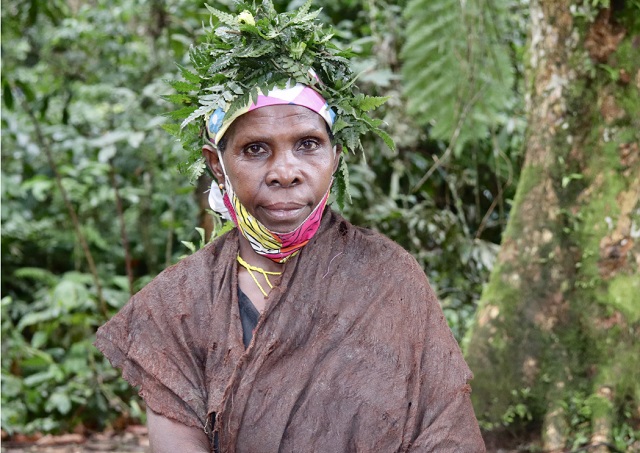
Upcoming UN appraisal raises questions on identity and provision of services
Kampala, Uganda | RONALD MUSOKE |
When President Yoweri Museveni’s government faces an appraisal of its human rights record by the United Nations Human Rights Council in early 2022, one of the main issues could be its treatment of its marginalised indigenous minority communities.
Activists for the groups are gearing up for the Universal Peer Review (UPR 22) by reminding the government of commitments it made during the last appraisal in 2016 and has failed to deliver, mainly in health and education.
Agnes Kabajuni, the regional manager of the Minority Rights Group International, a London-based human rights organisation that works to secure the rights of ethnic, religious and linguistic minorities and indigenous people around the world, describes the appraisal as “a stock taking of the recommendations committed to in 2016.”
“We want to see the government commit itself and give a sincere report on what they have so far done,” said Kabajuni on Oct.25 in Kampala, “Uganda’s UPR 2022 is critical to the status of ethnic minorities who are largely vulnerable to exclusion, discrimination and high levels of poverty.”
She said the commitments made on education and health are critical to minority groups since they struggle for a better social economic status.
The universal peer review is done every four years by the United Nations Human Rights Council. The UN member states appraise one another’s human rights record. During such reviews, states are given recommendations, which they are expected to take or ignore.
Uganda’s indigenous and ethnic minority people include the Batwa in the southwestern Uganda districts of Bundibugyo, Kanungu, Kabale, Kisoro and Rubanda, the Batuku in Ntoroko District and the Bamba, and the Babwisi and Banuma in Bundibugyo District.
Others include the Ik, the Ngikutio, Napore, Nyangia, Mening and Pokot from the Karamoja sub-region in northeastern Uganda, the Maragoli and Bagungu from Bunyoro region in mid-western Uganda, the Benet from the slopes of Mt. Elgon in Kween, Kapchorwa and Bukwo Districts in eastern Uganda, and the Basongora, Banyabindi, Bagabo and Bakindwe who live in Kasese District.
Some of these indigenous minorities, such as the Batwa and Benet, lost their lands to conservation programmes. They were not compensated or resettled, and lost their livelihood. Most became destitute. Many failed to get an education and cannot get jobs. They live in temporary settlements without schools, healthcare, transportation, political participation, and justice.
The Batwa were forcefully evicted from their ancestral lands without due compensation and are perhaps the most vulnerable indigenous minority in the country.
The Batwa evictions started in the 1930s, during the colonial times but more brutal evictions happened in the 1990s when thousands of Batwa were pushed out of their ancestral forests to create Bwindi and Mgahinga Gorilla National Parks, and Echuya forest reserve. Left landless after the evictions,the Batwa now live on the fringes of society in Kisoro, Kabale, Rubanda, Kanungu and Bundibugyo districts.
When the Minority Rights Group International gathered representatives of these minority groups in Kampala on Oct.25, many spoke about the marginalisation and discrimination that they endure everyday.
Augustine Wilson Mubulya, the Prime Minister of Obudhingiya Bwa Bwamba who also doubles as the chairperson of the Indigenous Minority Group Rwenzori Platform in Bundibugyo District says the indigenous minorities in the Rwenzori sub-region share common problems.
“In Kasese, for instance, there are many Banyabindi (settler agriculturalists), the Basongora (pastoralists), the Bagabo and Bakindwe (fisherfolk) but if a member of any of these indigenous minority groups wants to get health services, they might have to change their name so it resembles that of the majority ethnic community (Bakonzo).”
“In education, the thematic curriculum was introduced to address learners in their mother tongue but the indigenous minority languages have not been codified and Rukonzo language dominates in schools,” Mubulya said.
Mubulya says this is because the minority communities do not have representation in institutions like the National Curriculum Development Centre (NCDC) which sits in Kampala.
“In Bundibugyo, we have approved the orthography of Rubwisi and Rwamba, but books that were sent in Bundibugyo were set in Rukonzo and yet 75% of the people who live in Bundibugyo are not Bakonzo.”
He added that, “They printed the books in Rukonzo because there is no one at NCDC who represents any of those communities apart from the Bakonzo.”
 The Independent Uganda: You get the Truth we Pay the Price
The Independent Uganda: You get the Truth we Pay the Price


